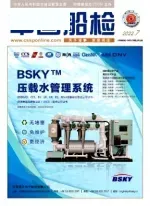The Development of“Market Based Measures”
By Wang Fenliang
The international shipping emission pollution legislation needs to consider the relative external costs and the level of social acceptance. At present, there are two kinds of emission legislation on ship air pollution and GHG. They are “order and control”regulations and MBM. Currently, “order and control”regulations are traditional and mandatory standards,binding on the flag States. The advantage of such regulations is that they are clear and can be implemented.However, such regulations adopt the uniform standard and are less effective and fail to consider the different pollution control costs of different polluters, MBM therefore becomes more prevalent.
Compared with mandatory legislations, “Market Based Measures“ has various advantages. MBM could achieve the emission reduction target by the minimum GHG reduction cost. MBM includes pollution tax and tradable emission permit. For example, there is no need for government intervention if shipowners are continuously encouraged to reduce emission and they will reduce emission by voluntarily improving technology.
What is emission charge? It refers to tax charge of emission in one unit, such as CO2U.S. dollar/ ton; it means that emission is not free. The cost of shipowners’using new technology to reduce cost is rather lower than paying tax charge. It therefore gives incentive for shipowners to cut costs for new technology research and development without government intervention.Shipowners develop eco-friendly ships that could reduce fines which could be used for management funds. Of course, emission fine has its shortcoming, firstly, it is hard to determine the right fine level; secondly, only as an tax, it will bring burden for shipowners, if the tax is not charged on a global level, it would be more unfair; in addition, owing to the fluctuation of the shipping market,shipowners will not care about paying fines when the freight is high, which is not good for emission reduction.
“Tradable emission permit” originated from Gauss law 1960, it is considered as the progress of emission standard system, as the government is not simply determining on the emission standard but determining on the permitted emission volume in correspondence with the emission pollution and makes the market to determine the emission quota. In essence, it is to create a market with pollution right. The government firstly allocates the original pollution right as well as unrestricted trade permit,but it should meet the requirements that polluters have the right to hold pollution permit; clear rights as well as fines for exceeding the limit. The government should determine the volume of permission, allocate and sell initial permit to polluters and set up the conditions for the trading of permit in the market.
By means of tradable permit, the shipowners with high emission cost could purchase permit from shipowners with low emission cost. There is no change to the discharge volume while the emission cost of all participants are reduced. Two shipowners will continue trading until the curve of their marginal costs is coincided. And as a result,both ship-owners and the society will bene fit.

